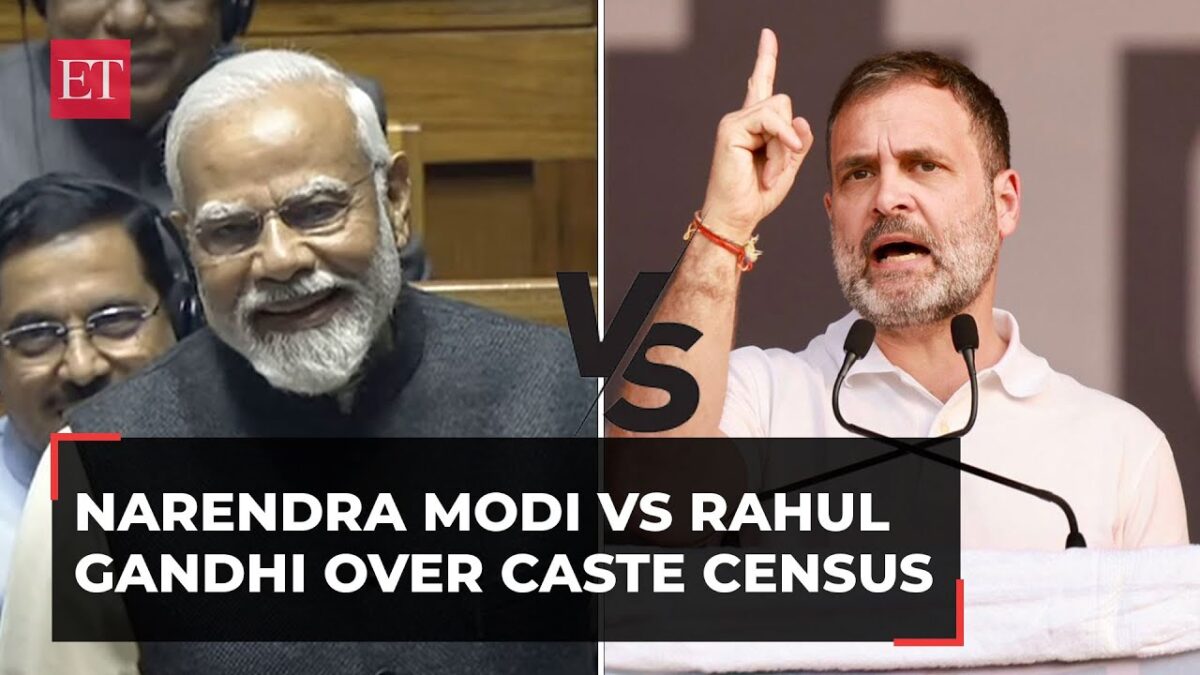Table of Contents

Introduction:
In the realm of Indian politics, discussions around caste dynamics have always been sensitive and intricate. Recently, a statement made by Rahul Gandhi, the prominent leader of the Indian National Congress, has stirred a fresh wave of debate. Rahul Gandhi alleged that Prime Minister Narendra Modi, despite not being born into an Other Backward Class (OBC) family, would oppose conducting a caste census. This assertion has reignited discussions on caste-based politics and the significance of accurate demographic data in policy formulation.
Modi’s Caste Identity: An Unfolding Narrative:
The assertion questioning Prime Minister Modi’s caste identity sheds light on the complexities of Indian society. Narendra Modi, the face of the Bharatiya Janata Party (BJP), has been a polarizing figure since his ascension to power in 2014. While his political journey has been meticulously documented, his caste background remains a subject of speculation. Contrary to popular belief, Modi hails from the Ghanchi community, traditionally associated with oil pressing. However, the Ghanchis are not recognized as OBCs in Gujarat, the state from which Modi originates. This discrepancy between Modi’s caste identity and his political stance on caste-based policies forms the crux of Rahul Gandhi’s recent allegation.

The Call for Caste Census: Significance and Implications:
The demand for a caste census in India is not novel; however, its urgency has intensified in recent years. The last caste-based census was conducted in 1931 during British rule, making contemporary data severely outdated. Caste continues to play a pivotal role in Indian society, influencing social, economic, and political dynamics. Accurate caste data is essential for identifying marginalized communities and formulating targeted welfare schemes. Proponents argue that a caste census would enable the government to address systemic inequalities and ensure inclusive development. However, opponents, including Prime Minister Modi’s government, express concerns over potential divisiveness and the perpetuation of caste-based identities.
Rahul Gandhi’s Allegation: Political Maneuver or Valid Concern? :
Rahul Gandhi’s accusation against Prime Minister Modi underscores the deeply entrenched nature of caste politics in India. By questioning Modi’s commitment to a caste census, Gandhi aims to highlight the BJP’s perceived hypocrisy regarding social justice issues. The Congress leader’s statement serves a dual purpose: to mobilize support among OBC communities and to challenge the BJP’s moral authority on matters of caste-based discrimination. However, critics argue that Gandhi’s allegation lacks concrete evidence and may be construed as political opportunism ahead of crucial state elections. Regardless of the underlying motivations, the debate sparked by Gandhi’s statement underscores the enduring significance of caste in Indian politics.

The BJP’s Response: Defending the Status Quo:
Unsurprisingly, the Bharatiya Janata Party swiftly rejected Rahul Gandhi’s allegation, reiterating its stance against conducting a caste census. BJP leaders argue that India’s focus should be on development and progress rather than perpetuating caste divisions. They emphasize the government’s commitment to uplifting all sections of society through inclusive policies devoid of caste considerations. Additionally, BJP spokespersons accuse the opposition of using caste as a political tool to sow discord and garner votes. The party’s steadfast refusal to entertain the idea of a caste census reflects its broader ideological stance on social engineering and nation-building.
Conclusion: Caste, Politics, and the Quest for Inclusivity :
The controversy surrounding Narendra Modi’s caste identity and Rahul Gandhi’s allegation epitomizes the intricate interplay between caste and politics in India. While caste-based discrimination persists as a societal challenge, its exploitation for political gain further complicates the landscape. The demand for a caste census represents a quest for accurate representation and targeted intervention in addressing social inequities. However, entrenched political interests often obstruct progressive reforms, perpetuating the status quo. As India navigates its developmental trajectory, reconciling the complexities of caste with the imperatives of inclusive governance remains a formidable task for policymakers and political leaders alike.



